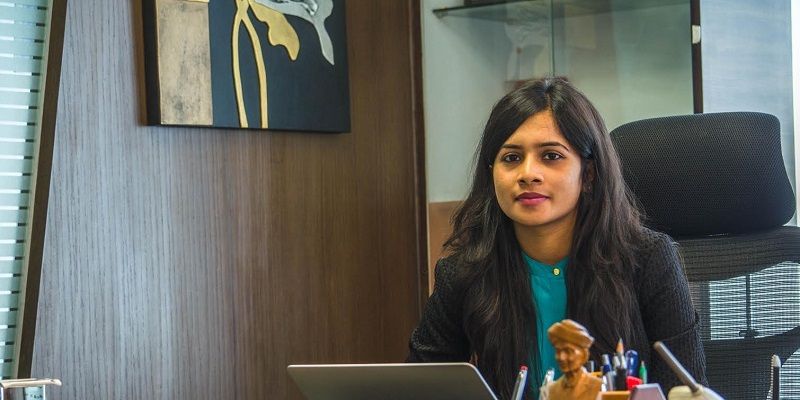One of the most affected business by COVID-19 have been the co-living accommodations which are not only struggling with the tenants’ inability to pay rent, but have to also deal with rising vacancies due to reverse migration. However, some of them have seen this as an opportunity to fuel the need for good quality living in a safe and secure environment.
Based in eastern Bengaluru, Dwellingo is a purpose-built co-living accommodation for working professionals and startup companies. It ensures that the occupants get enterprise-grade WiFi so that its guests can work from home without interruption and also have a sense of community while maintaining social distancing.
"Dwellingo is geared towards the young, 20-something working professional who is interested in a holistic lifestyle experience to unwind. It caters to a younger, tech-minded audience who seek out nightlife and mid-day meditation in the same 24-hour cycle. The seamless app integrates your phone with room access control, energy use, real-time updates, and much more," Rishi Sreedharan, Co-founder of Dwellingo, tells YourStory.
The startup manages three properties, and a fourth is under construction in Bengaluru which will cater to young entrepreneurs who are looking to start out and would like an independent lifestyle.
It was founded in 2019 by Rishi Sreedharan, Grishma Reddy, and Anirudh Rao – who believe that they can become market leaders in the industry.
The founders
Rishi has a Master’s degree in Business Management from The Fuqua School of Business, Duke University. He has worked in advisory roles for multiple Fortune 100 companies. He was an IB analyst at Merrill Lynch, and also ran financial and customer acquisition strategy for the telco vertical of a marketing analytics firm, handling monthly budgets and assets under management.
When he moved back home in 2017, he became the director of a family-run real estate development firm where he oversaw multiple facets of the real estate value chain.
At Dwellingo, he oversees the financial management as well as the overall day-to-day functioning of the firm–which has become even more crucial due to COVID-19.
Grishma holds a Master’s in Entrepreneurship and Innovation from NTU College, Singapore and Stanford University, US. She was a Strategy & Operations Consultant at KPMG India where she outlined comprehensive feasibility strategies, as well as transformation and diversification strategies for various businesses. She spearheads the marketing, design and customer-centricity at Dwellingo.
Anirudh is an ISB Graduate with a Bachelor’s in Civil Engineering from VIT University, Vellore. Having forayed into the real estate business and layout development at Hyderabad and Visakhapatnam, he went on to work in various government think-tanks and policy groups, including the Andhra Pradesh Economic Development Board under the aegis of former Chief Minister N Chandrababu Naidu, and led multiple delegations under deputation by the state government. He also currently serves as the President of The Visakhapatnam Chambers of Commerce and Industry.
He is also a successful angel investor with multiple exits under his belt, one of them being an online pharmacy startup that he co-founded in 2013.
Anirudh's day-to-day activities at Dwellingo include fund raising and investor relations, as well as enhancing operating efficiencies while de-greasing the inefficiencies that come with running an operationally-dense pursuit.
Although the founders knew each other since childhood, they also studied at VIT University where they co-authored a research paper on Foundation Engineering that was published in the International Journal of Geomechanics and Geoengineering.

Grishma, Dwellingo Co-founder
What Dwellingo offers
Rishi reasons that the industry's inability to deliver a high-quality product and experience at an accessible price was due to the nature of the co-living operator who, in the interest of pursuing an asset-light Oyo/WeWork-like model, would rope in multiple stakeholders. These included asset-owners/landlords, furniture-providers and maintenance staff among others.
Other than that, most of the co-living properties are repurposed PG buildings that continue to relegate the consumer to claustrophobic PG rooms with minimal service.
"The three of us realised that the paradigm of co-living operations across India is a pure brick-and-mortar service masquerading as a tech-play. We noticed a clear mismatch between what could be delivered and what was being offered by co-living players in India," says Rishi.
Dwellingo solves for the fragmented shared-living ecosystem that is underserved by asset-light players with a skin-in-the-game disconnect and little to no focus on UX and product.
With a near-term focus on working professionals, a mid-term focus on students, and a long-term outlook on senior living, Dwellingo seeks to be the premier consumer co-living brand.
The properties are ergonomically designed by world-leading architectural teams and designers such as MVRDV from Denmark. They also hired purpose-built industry-first furniture designers to facilitate the property towards startups and entrepreneurs.
“There is access to an easy-to-use app that allows the consumer to pay their utility bills, raise a complaint about his maintenance-woes, and in some cases, find recommendations to the closest restaurant, watering hole or cafe," says Rishi
The properties are equipped with energy monitoring systems that encourage judicious use of electricity, with real-time monitoring and regular nudging in the Dwellingo-app.
"We focus on the holistic improvement of our members by focusing on experiences, building personal growth, connections, mindfulness, meditation, establishing deep connections, and more," he adds.

Dwellingo co-founders Anirudh (left) and Rishi (middle)
The business model
The company currently offers 300 beds and is building 350 more. It offers luxury rooms with five-star amenities, costing Rs 15,000-35,000 a month.
Their first customer was won in early 2019 by spamming Facebook groups of people searching for roommates and studios. "I personally called people up. Our first customers were a couple from Kerala working at an IT firm," says Rishi.
The founders have since raised an angel round of Rs 30 crore, and today, have an ARR of $1 million. Since the startup is in their earlier part of their operations, they do no want to disclose their revenues.
However, the business has seen its share of problems. Land acquisition was difficult as was finding clear-titled, unencumbered land.
The pandemic does not help either. Due to COVID-19 and reverse migration, Dwellingo’s business is halved, off-kilting its occupancy-sustainability – which forms the backbone of the business. However, the three young founders believe that people will soon travel and return to the co-living space.
"We will double down our efforts on our current purpose-built under-construction project and not spread ourselves thin and manage the current crisis," says Rishi.
They are also tying up with various startups and MNCs to cushion the impact of COVID-19.
Zebu films, an animation studio based in the US who happens to employ a few hundred people across India, is one of their customers. For their Bengaluru office, they have given Dwellingo the mandate to accommodate their employees who come to receive training.
"A part of the appeal was that we also focus on holistic experiences, intellectual stimulation, reading clubs, encouraging social interaction etc. In return, they’ve guaranteed us fixed revenues regardless of occupancy. That hedges some of our occupancy risk on the consumer-side." says Rishi.
The expansion across cities in the south will happen only over the next two years.
The co-living market and competitors
The current market size for co-living spaces is $6.67 billion, which will grow to $13.92 billion across top 30 Indian cities, according to a Cushman and Wakefield India report. It adds that the demand for co-living spaces in terms of the number of beds is slated to grow from to 5.7 million, up from 4.19 million.
A 2019 survey by Housemonk mentioned that internationally, the industry will cross $100 billion, in revenues, within the next few years.
The co-living spaces are fast replacing paying guest accommodations, which the founders say are often unhygienic, crowded, and provide no personal space. Most of them have limited-to-no housekeeping or maintenance of linens, laundry, and other consumables.
Co-living accommodations, run by well-funded and well-entrenched operators such as Oyo, Colive, and HelloWorld, are phasing out PGs due to their relative affordability and the location of the property.
Any person who wants to move in to Dwellingo selects plans such as Zoomer (3-5 months), Boomer (6-8 months), Millenial (9-12 months) and a corresponding room-type: The Soloist plan offers a single bedroom to yourself, the Soloist plus offers a large single studio bedroom to the consumer.
However, they expect to be a $1 million business in 18 months.
Dwellingo competes with YourOwnRoom, Oyo Life, Your Space, and Stanza Living.
Edited by Kanishk Singh
Want to make your startup journey smooth? YS Education brings a comprehensive Funding Course, where you also get a chance to pitch your business plan to top investors. Click here to know more.
Link : https://yourstory.com/2020/09/co-living-startup-dwellingo-pandemic-luxury-accommodation
Author :- Vishal Krishna ( )
September 22, 2020 at 05:35AM
YourStory



